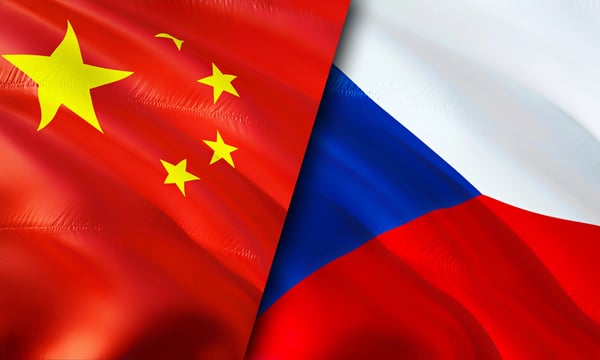In August, Beijing announced it was cutting contact with Czech President Petr Pavel after his private meeting with the Dalai Lama in India. In reality, there was little contact to sever. The era of his predecessor – former President Miloš Zeman, who once called Xi Jinping his “young friend” and told Chinese television that Czechs should “learn from China how to stabilize society” – is long gone.
Over the past four years, China-Czechia relations have reached a historic low under the government of Prime Minister Petr Fiala. Yet this collapse cannot be explained solely by a change of government. The downfall began earlier, with the spectacular failure of Zeman’s attempt to “restart” ties, which peaked between 2016 and 2018. What was once billed as a “golden era” of partnership quickly revealed itself as hollow promises, reputational costs, and growing public suspicion.
When China’s top leader Xi Jinping visited Prague in 2016, Zeman cast China as a strategic partner that would rescue Czech industries and transform Prague into Beijing’s “gateway to Europe.” Chinese conglomerate CEFC, whose chairman Ye Jianming became an advisor to Zeman, was promoted as the “flagship of Chinese investments.” At the same time, Czech business elites were deeply invested in closer ties. The country’s largest company, PPF, and its subsidiary Home Credit relied on political support for their access to China’s consumer loans market, leveraging close ties with Zeman to protect their business interests.
But the promised billions in investment never materialized. CEFC collapsed in 2018 amid corruption scandals, and Ye was quietly disappeared by the Chinese Communist Party’s disciplinary organs, while still formally an advisor to the Czech president. PPF’s position in China also eroded as stricter financial regulation, the pandemic, and rising domestic competitors made its operations increasingly unviable. This year, the company finally exited China, selling its business at a fraction of its supposed value.
Instead of economic windfalls, Prague was left with concerns about elite capture, propaganda, and security vulnerabilities, compounded by the bitter aftertaste of unfulfilled expectations. Czech intelligence agencies repeatedly warned that China, alongside Russia, posed a primary threat to national security.
This whole story is important to understand the context of the dynamics of perception of China and its influence in the Czech Republic. In the China Index, which uses on the basis of quantitative methods to measure Chinese influence in over 100 countries, Czechia gets relatively low scores in both editions (published in 2022 and 2024). One reason is that while the Index captures observable instances of Chinese influence – including political contacts, trade dependence, and media echoing – it cannot cover every domestic initiative that indirectly supports Beijing’s interests. And as was explained, local actors played an important part in pro-PRC efforts in Czechia.
For example, PPF – through its subsidiary Home Credit – funded a campaign to “rationalize” the debate about China and counter critical voices in the country, particularly the project Sinopsis, which was critical of Czech policy toward China and had reported on PPF’s business activities in China. Similarly, the circles around Zeman acted as proxies for Beijing while attacking the late president of the Senate, Jaroslav Kubera, for intending to visit Taiwan.
One of the changes highlighted by the Index is a decline of influence in the areas of foreign and domestic politics. This reflects not only a broader shift in Czech political sentiment toward China, but also the transformation of the political landscape after the 2021 elections. That year, the Social Democratic Party and the Communist Party didn’t pass the election quorum for the first time; these two parties had the most frequent contacts with the CCP through its International Liaison Department. While ties with the Czech Communists were naturally the closest, contacts with certain figures in the Social Democratic Party often proved more useful. For instance, when the party leadership sought to revive China-Czechia relations during the COVID-19 period, illustrated by their servile reception of Chinese medical aid at Prague Airport.
While the Communists and Social Democrats were seeking a comeback in 2025, the October elections have once again kept them out of Parliament. Instead, the populist ANO movement of billionaire and former Prime Minister Andrej Babis scored a landslide victory and is now exploring coalition options. Although several combinations are mathematically possible, Babis’ first choice for talks appears to be the far-right SPD and the formerly fringe right-wing populist group Motorists for Themselves, which has now entered national politics for the first time.
The chief foreign policy advisor to the Motorists is former MEP Jan Zahradil, long one of the most prominent pro-China voices on the Czech right and an outspoken advocate of a “multipolar” world order. A fierce critic of the current government’s foreign policy, Zahradil previously chaired the EU-China friendship group in the European Parliament and has recently launched a new Asia-focused think tank.
As the Czech political landscape shifts once again, debates over the country’s approach to China are likely to follow. A full return to the Zeman-era theatrics seems improbable, but the voices calling for a renewed “rationalization” of relations with Beijing are growing louder.






